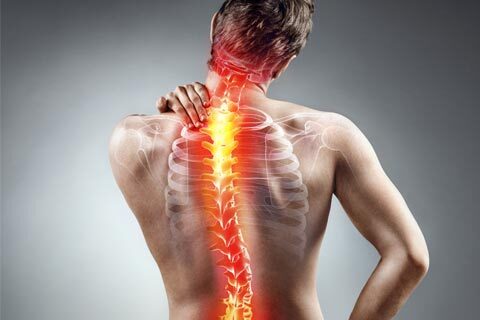
Spondylosis, also known as spinal osteoarthritis, is a degenerative condition that affects the spine. It involves the wear and tear of the spinal discs, as well as the breakdown of the cartilage and bone in the vertebrae. Spondylosis commonly occurs as a natural part of the aging process and is more prevalent in older adults. It can affect any region of the spine, including the neck (cervical spondylosis), middle back (thoracic spondylosis), or lower back (lumbar spondylosis).
Homeopathy treatment is often recommended for spondylosis due to its potential to reduce pain and stiffness. While the deterioration associated with spondylosis cannot be reversed, homeopathy treatment can help halt further damage. One of the significant advantages of homeopathy is that it provides relief from pain without the need for painkillers, offering a natural and safe alternative. With the use of natural remedies, homeopathy aims to minimize adverse side effects.
At Wellness Homeo Clinic International, we specialize in constitutional homeopathy treatment for spondylosis, aiming to improve your quality of life by effectively managing pain and stiffness. Our team of expert homeopaths not only prescribes the most suitable and effective remedies but also provides guidance on specific exercises and lifestyle changes that can aid in your speedy recovery. Our holistic approach is designed to address the root causes of spondylosis and promote overall well-being.
Cervical spondylitis is a prevalent degenerative condition that affects the cervical (neck) spine and is primarily attributed to age-related changes in the spine.
Ankylosing Spondylitis is a condition that can impact individuals of all ages, without a specific pattern of occurrence.
Ankylosing spondylitis, a chronic inflammatory condition affecting the spine, typically does not pose direct problems for the mother or baby during pregnancy. However, certain medications taken by the mother to manage the condition can potentially be harmful to the baby's well-being.
It is important for pregnant women with ankylosing spondylitis to carefully consider the potential risks and benefits of any medications they are taking, as some medications may need to be adjusted or discontinued to ensure the safety of the baby. Consulting with a healthcare professional is crucial in order to find the most appropriate and safe treatment plan for managing ankylosing spondylitis during pregnancy.
The risk factors for cervical spondylitis include aging, repetitive neck movements, poor posture, sedentary lifestyle, previous neck injury, genetic predisposition, smoking, and certain occupations requiring prolonged neck stress.
With cervical spondylitis, some small precautions can help manage symptoms: maintaining good posture, using ergonomic supports, avoiding prolonged neck strain, practicing gentle neck exercises, avoiding heavy lifting, taking regular breaks, using a supportive pillow, and consulting a healthcare professional for personalized advice.